September is National Recovery Month, a time dedicated to recognize all those who have recovered from addiction, those who are just beginning their journey to recovery, and all those who support people on this journey. Substance use and abuse is an undeniable thread in the fabric of our society- touching countless lives directly and indirectly. Young people are aware of this; they feel the powerful presence that drug and alcohol abuse can have in their homes, communities, and schools. Substance abuse may play a factor in a young person’s decision to leave home, whether the abuse is that of a family member or their own. Addiction is a serious subject and one that disproportionately impacts young people experiencing homelessness or who have left home.
It is a persisting and harmful stereotype, however, that all people experiencing homelessness are using or abusing drugs or alcohol. While drug and alcohol use in the homeless community is higher than that of the general population, substance dependency is both a cause and a result of homelessness- often starting once the person has lost permanent housing. According to an issue brief from the National Network for Youth, between 30 and 40 percent of unaccompanied youth report alcohol problems in their lifetime, between 40 and 50 percent reported drug problems. For many people, substance use and abuse can co-occur with mental or physical illness and might begin as a means of self-medication for people who can’t access the health care system.
Taking substances may provide temporary comfort or an escape from an overwhelmingly uncomfortable situation. A person might lean on this support to help them cope with difficult situations, or cope with the complex feelings of shame, guilt, and fear often associated with the experience of homelessness, especially when there is an absence of healthy alternatives. While this relief is temporary, it is easy to constantly come back to the feeling of comfort it provides, which can create an ongoing and cyclical use that leads to addiction. Once an addiction develops, it can be extremely difficult to break. Without a good support system or resources, it can seem impossible.
Fortunately, there are great resources available for people struggling with addiction. Addiction doesn’t mean that your life is over or wasted and there are always options, no matter how long you have been using. Relapse is not a sign of failure and recovery is always possible.
If you or someone you know is struggling with addiction, NRS might be able to help. Each year, NRS connects thousands of young people with resources in their area, and provides a non-directive, and non-judgmental approach to every connection. Give us a call or chat anytime, 24/7, and we’ll listen to your story, help you come up with a plan, and connect you to free resources. You don’t have to deal with this alone.




